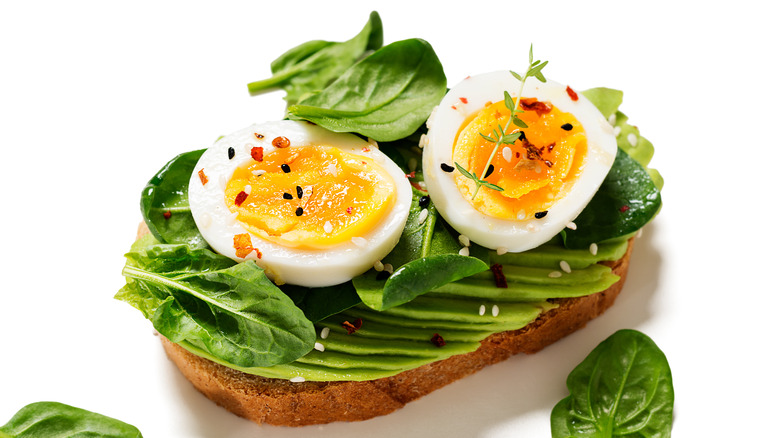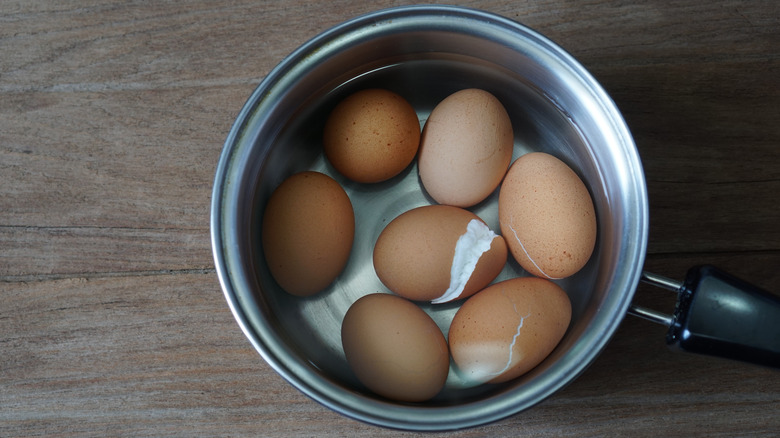Can You Eat Hard-Boiled Eggs That Cracked While Cooking?
Boiled eggs are a staple around the world. Whether you prefer a hard-boiled egg or a three-minute egg, their simplicity and ease of preparation make them a favorite.
The one downside to eggs is the risk of food poisoning they can present. From an early age, most of us have been taught to avoid raw eggs and discard cracked eggs. There are some very good reasons for these caveats. First and foremost, eggs have a high potential of transmitting the Salmonella Enteritidis bacteria.
The USDA reports that of the 46.8 billion eggs Americans eat yearly, 2.3 million are contaminated with Salmonella. This may seem like a small percentage, but as the USDA reports, "The consumption of these eggs results in a mean of 661,633 human illnesses per year." That is a lot of upset stomachs.
Understandably, looking at these numbers, you should throw away any eggs you buy cracked, but what about eggs that crack while you're cooking them? Are they safe to eat? What should you do with an egg that breaks while you're boiling it?
Are cracked hardboiled eggs safe to eat
The USDA Food Safety and Inspection Service has dedicated much research to egg safety. In their report "Shell Eggs from Farm to Table," they state that "if eggs crack while transporting them home from the store, the USDA advises breaking any cracked eggs into a clean container. Tightly cover the container and refrigerate it, using the eggs, within two days. If eggs crack during hard boiling, they are still safe to consume." So, you should consider boiled eggs that crack during cooking safe to eat.
However, in this same report, we find a cautionary note telling us that eggs can be contaminated with bacteria even when there are no cracks in the shell. Because of this, the USDA recommends boiling eggs until both the whites and yellows are firm and thoroughly done — for lovers of soft-boiled eggs, this may be sad news. But, as they say, an ounce of prevention is worth a pound of cure.

